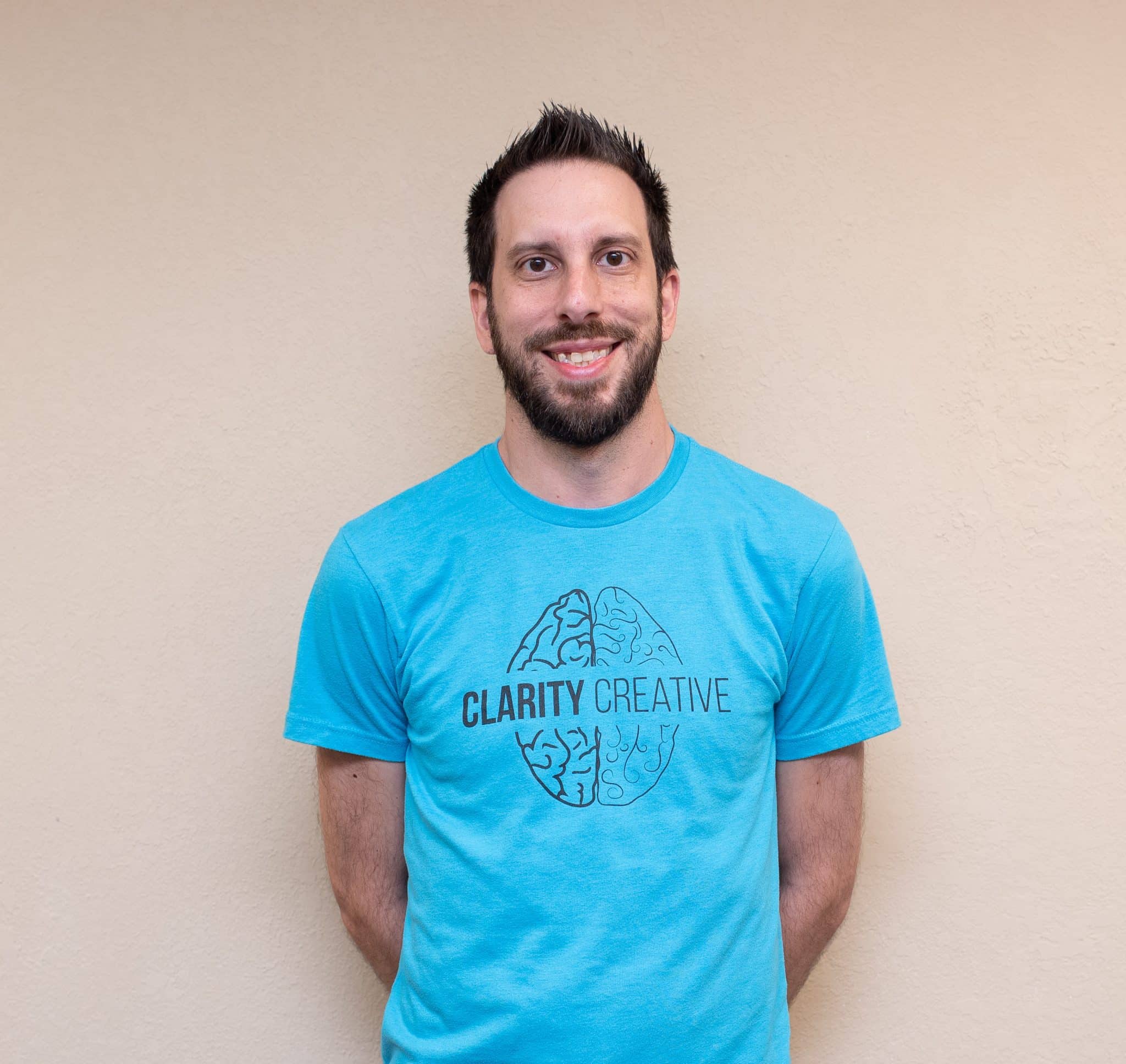In our 3rd episode, we discuss:
- Our Tool of the Episode, Hubspot Email Tracking and how you can use e-mail scheduling and e-mail opening notification for your business.
- Our Deep Dive provided some insight into the differences between LLCs and Corporations. Which is right for your business? Are you at risk? Should you incorporate as a Limited Liability Company or a Corporation? Once you have your business concept in mind, it is imperative that you set it up for success. Knowing the right way to incorporate is a critical step. Find out what is best for your business in this episode.
- Finally, In our Trivia round, we discuss big corporations and relate it to business, with a bit of fun.
Like what you hear? Go ahead and subscribe:
- Subscribe to us on Apple iTunes
- Listen to us & subscribe on Stitcher or Google Play
- Follow us on Soundcloud
Don’t have time to listen to a podcast? Left your headphones in your other purse? We know that feel, bro. So we’ve transcribed the whole episode right here:
Episode Transcript
Craig: Welcome back to IWantBusiness, the Small Business Podcast. We are back in action, episode 3. I’m Craig, this is David.
David: Hey, everybody.
Craig: We’ve got our producer extraordinaire, Brian, in the building as well. We are recording from our office in Winter Springs, Florida. This episode, we’re gonna talk about the difference between LLCs, S-Corps, C-Corps. You’re starting a business, you want to know the difference. We’re gonna help you try to figure that out.
We’re also gonna discuss our Tool of the Episode in just a moment. We’re gonna have a little fun trivia as well. But now that you know what we’re gonna get into, David’s gonna hit you with Hubspot, our tool of the episode.
David: Yeah, Craig. So a lot of people know Hubspot as … it’s to help market your business. But there’s a really cool, free tool that they offer that, you don’t even have to sign up with their service, and you can use it and we use it. And it’s called Hubspot Sales, and it plugs into Gmail, it plugs into Outlook.
And what’s really cool about it, it does two things, one I absolutely love and one that i know you absolutely love. And that is the tracking of knowing if somebody opens your email.
Craig: Oh, I do love it.
David: It’s great! I mean, you check a little check box, you send the email, and then sometimes, three seconds later, somebody’s already opened up your email and you know that it’s been viewed. And sometimes, they don’t open up the email, so you know that your follow-up with them is gonna be way different. I love that aspect of it.
The other part is the scheduling. So it offers that you can now have an email go out the next day, a couple days later, maybe in the evening, maybe type something up on the weekend, have it send Monday morning. That way, it’s in their Inbox, it doesn’t get lost.
Craig: I was pretty resistant to this at first, I’m not gonna lie. Again, David and I have been business partners for about a decade here, and he always gets the new tech stuff and it’s never my thing. But he won me over with this one and I’ll give you two examples of why.
So the opening up of the email, at first I was like, “Why do I need to know that? Why do I care? I sent it, who cares?” Clients of ours would not get back to us over time. And he would show me that, going back to this and seeing, “Well, did they even open this?” He kept asking it to me and I said, “I have no idea. What are you talking about? How would I know?”
And he said, “The Hubspot. I told you about the Hubspot. Load it in.” I believe it was a Chrome extension?”
David: Yeah. Exactly.
Craig: Is that what I had to do? So what that is, and for any laypeople that might be listening, I use Google Chrome as my browser and I love it, so there are these extensions that you add on and it can do more functions. And, again, this is one of those things that I was resistant to in the beginning, but I added this Hubspot function and immediately it was showing me when I client, or even my wife, opened the email. So I knew that they had received the proposal, or she got the message that I sent about our upcoming trip, whatever it was.
I was like, “Okay, finally. I’m starting to get….” It’s almost like you’re having that conversation with the person, and you didn’t have to get them to actually call you. I guess that’s why we’re all texting these days, anyway. So I’m getting that receive notice and I don’t have to reach out to them about it. Now the also kinda cool fact, they don’t know, necessarily, that that’s happening. But it’s a fun way for us to take that next level.
The scheduling helped me out in a whole different way. I think we talked about this in either episode 1 or 2 with the trivia business that we have, we generate all the trivia and we have all these questions and it was hard to remember to send it out at the same time every week and every day.
So what David started telling me was, “Well, why don’t you schedule it?” So we went through that whole conversation again of, “What do you mean? What are you talking about? I can’t do that.” He says, “Hubspot does that.” I had forgotten what that was at this point and then said, “What do you mean? How do I do it?”
He said, “Click the little clock” and it was just that simple. Because I had already done the Chrome extension, it was already built into Gmail. I said, “What little clo– Oh. There’s a little clock right next to Send.”
This is literally how it went down, it was weeks ago, it wasn’t even that long ago. I hit the clock, it lets me schedule that email up to two weeks out. And my mind was blown, so insert blown mind sound effect here. But I was able to schedule out trivia a week later for what was going out and making sure that email goes to all the hosts and everyone that needs it a week in advance. And that’s part of my goal, we’re trying to get two weeks ahead. This tool was enabling me to do that, without having to set 15 reminders of, “Don’t forget to send your email. Don’t forget to send this email. Don’t forget to send that email.”
Hubspot was taking care of it for me.
David: Oh, yeah, it’s great on the weekends, it’s great on getting a solid schedule down. And overall, it’s so easy to integrate, it’s literally just a check box and it will now send you reminders … Or send you updates on when somebody opens it.
I definitely sent some important emails that never got opened and it turns out just got lost in their email box. But instead of thinking that we had lost a client, it was just a, “Actually, I’ve been busy and I missed it. Can you resend it again?” What a great opportunity to know what’s going on in the busy world of email.
I know the free one that they offer has maybe, I don’t know what the current number is, maybe it’s 200, maybe it’s 300 tracking sends that you can do and I think the scheduling is unlimited. If you gotta do more than that, you might be able to spend a couple bucks. But a small business getting started, it can’t hurt to know what’s going on.
Craig: Absolutely. Keeping a pulse on the messages you have sending out, a priceless step in the beginning of your business. So that’s our tool of the episode, Hubspot, the free version, where you can schedule, you can know who’s opening your emails. Again, Hubspot has a whole wealth of other things, but we’re always gonna try to give you a free asset for you to use to grow your business.
Coming up next in our Deep Dive, we’re gonna talk about LLCs and corporations, which one is right for you?
IWantBusiness is brought to you by Tasty Trivia, www.TastyTriviaOrlando.com, Orlando’s best live trivia.
Welcome back to IWantBusiness, the Small Business Podcast. We’re gonna get deep. We’re gonna dive. LLCs, corporations, what is the difference? Which one is right for you? Let’s learn.
David: So much to talk about. We kinda brushed over this, I think, in episode …
Craig: One point five.
David: One point five.
Craig: (laughs) Right, it was somewhere between episodes 1 and 2 we mentioned it.
David: We definitely mentioned it, and some of the feedback that we definitely got was, “We need more, Craig, David.”
Craig: (laughs)
David: “Give me more.”
Craig: People wanted more. You lovely people.
David: Yeah, which is great. And I’m really happy to provide a little bit more and really talk about the pros and cons, I think are really cool. So let’s really talk about, what is an LLC, Craig?
Craig: Ooh! “LLC” stands for “limited liability company…Corporation,” the “C” is irrelevant. (laughing) No, I’m just kidding, I’m just kidding. It stands for “limited liability company” and when you’re talking about companies … So, let’s go over some of the base things you can have.
You can have a sole proprietorship, you could have a general partnership, and those are things where you don’t need to quite incorporate. Then you get into where you actually have to file some paperwork, the LLC, that limited liability company, the S-corporation, and the C-corporation.
For the sake of this episode, I’m gonna talk a little bit about LLCs. David’s our corporate man. He’s got experience in that corporate world. Now, one of the things to start with is say, “Why do I need to do any of this?” Because you can start a sole proprietorship or general partnership with very little work, very little paperwork, and very little money. And you can file those and have it for taxation purposes.
The biggest thing about why we caution against doing that is liability. It happens to be in the word of LLC. And what that means is, are you at risk? Risk for money, risk for your livelihood, risk for your assets. What an LLC can do, the biggest thing, is protect your assets.
Now, it has a lot of advantages, but not being held personally responsible for debts and liabilities is huge. And that’s one of the things that the LLC does for you. “Pass-through taxation,” this is a term that you may even hear David bring up for the corporations. But what that means, pass-through taxation means that the LLC is not gonna pay those taxes at the business level. Income or loss gets recorded on the owner’s personal returns and it’s then taxed at that individual level.
That’s a good thing. Because you never want to get hit with those capital gains or those huge business taxes. You want it to come down to whatever level you’re at as an individual. So, again, big things here for you. The LLC’s gonna protect you so that, if you go into debt or if you have anything against you, it’s only against the business, doesn’t come after your personal home, your personal car, your personal bank accounts. Only monies that you invested in the business would feasibly be at risk. And of course, you’re only getting taxed on the money that comes through on your personal.
So, again, I’ll give you a personal example of that. I’ve got an LLC. We do business, money’s coming in, money’s going out, we pay payroll, we buy equipment. All of those things come off the business income. So now when the accountant puts what I’m taxed for, it is what’s left. It’s not the total amount of sales. It’s everything that gets taken in minus all those expenses, then there’s a business income and that gets added on to my personal taxes on a 1040.
So, for those of you that aren’t as familiar with taxing in general, 1040’s your pretty standard personal tax form. So when you do your taxes, every…maybe it’s April, maybe March, you’re gonna run a 1040. And, if you have an LLC, you’re running it through that way as well. The LLC can have its own taxation but your business income goes in and you want to get taxed at that individual rate, not at that huge rate.
So the flexibility…with an LLC, you can also be moving money through ownership. What I mean by that is, how you can be paid. Corporations, as David’s gonna tell you, have a lot more strict rules on how you can pay your owners. LLC, super flexible. I’m an owner myself, so I want that flexibility to, how am I gonna get my money? Is it gonna come directly to me? Does it have to come in shares of stocks? And that’s one of the disadvantages to a corporation.
So there’s no restrictions on ownership in an LLC. You don’t have to worry about what class you’re in; there are classes of corporations, the S, the C. So the big key, here, for when you’re making these decisions, is how much risk are you willing to take?
So give me a little bit, David, of information of some of the corps. I’ve gone and scratched the surface of the LLC, that limited liability company, protecting the assets of the people, and having flexibility.
David: The LLC side of things is a good starting point when that business is getting going. Usually, there’s a lot more accounting needs for that S-corp, C-corp side of things. So you’re already talking about a little bit more out-of-pocket expenses for your business. But if you’re already making that income, chances are, to protect you and protect what you’re doing, the S-corp, C-corp option makes a little bit more sense.
There’s definitely pros and cons of the corporation that are key. And I would say that, starting off as a LLC is a good way to get going, and then looking down the road, where are your taxes at? Who are you paying? How big is your company growing to? And then seeing if an S-corp, C-corp makes sense.
If you have that killer idea and you’re already getting investors going, maybe you start as an S-corp, C-corp. But you already know because you probably already had that flood of money coming in.
Craig: Would you say that the C-corp would be almost that big structure, what you almost imagine a corporate structure would be. Wouldn’t you agree with that? Or am I off-base?
David: No, it’s definitely there because it’s all about the taxation, right? So a lot of the LLC side of things is very fluid, through taxes, through management, are all kind of the same in an LLC. When you start getting into S- and C-corps, things start changing, from how your management structure can be or your upper echelon of owners, what that looks like in an LLC versus what it looks like in a corporation S or C.
Now, with the S or C, you’re probably talking about a board of directors versus your owners that are in charge.
Craig: And that’s a big problem for small businesses. When you’re starting out, you might have just yourself, maybe one partner. Maybe your mom. Whoever it is that’s helping you out. You certainly don’t have a hundred owners. You’re not ready to sell stock.
And really where these corporation elements come in, especially the C-corp, is that’s how you get your funding. You sell stock, you open things up and you bring people in as a part of the company. Again, we want to give you the information as to what these are and what they do. But the biggest thing for you to know as you’re starting a small business is, unless you’ve already got that arsenal of team members that are gonna be part of ownership, or maybe a huge venture capitalist amount of money coming in, it definitely looks like LLC is gonna be the best option to get something off the ground.
David: Yeah, the LLC’s gonna be a great start, as well as knowing that there’s other strict guidelines, too, in doing an S-corp. So if you’re opening up a business, and you gotta be a U.S. citizen to be an S-corp, or a resident here, so that’s kind of a key point, that you might be here in the States but you haven’t yet opened up anything.
As I said, there’s more strict guidelines in having your S-corp or C-corp. You’re gonna have to have less than 100 shareholders to be an S-corp. That C-corp will be more. So, again, you’re starting small, probably going to start off as that S-corp, and then as you grow, you’ll probably turn into a C-corp.
Craig: The key term, for me, that comes up every time we’re talking about the differences is “flexibility.” LLC offers you the most flexibility, while still protecting you. You still get some of that pass-through taxation with an S-corp. In fact, to give you some of a relationship to it, some personal friends of mine worked through an S-corp vs. an LLC because it has that same pass-through taxation that goes to them but allows them the ability to scale differently.
Whereas, with an LLC, especially in the terms of our business and what we know is, we’re not looking to sell stocks. We’re not looking to grow the company that way. We’re organically doing it ourselves. So, big difference there.
David: Well, most S-corps already have a solid gross profit, so what happens with an S-corp is you’re able to move those gross profits out at a different … not taxing the same way as an LLC. With an LLC, you’re kinda stuck in the tax world as pretty much paying taxes on any gross that you make. In an S-corp or C-corp, you can kinda move some of those monies out that were profits that you’re not having to pay taxes on.
So if you know that you’re gonna make a solid amount of gross profit that year, going to an S-corp really makes sense, taxation-wise.
Craig: Absolutely. And that’s a big key. If you’re scaling up and you’re doing big things, S-corps should be definitely on your radar. Especially because the big disadvantage to an LLC is that growth potential. You certainly can’t sell any stock to attract any investors. That’s the way LLCs are, you cannot do that with it. They can be actually treated differently state to state. So that’s kind of a big thing, whereas the the corporation, you have access federally that way when you’re an S-corp or C-corp. Whereas LLC, you might be treated differently in Florida than you are in Georgia. And it’s key for you to know that. And what some companies will do is actually have multiple LLCs because that’s one of the ways they want to protect themselves.
Just as a fun fact, Chrysler actually operates as an LLC and when Fiat bought them they had an FCA US, LLC. So, that’s to protect huge amounts of money. They made a huge investment in a car company.
That’s just one concept. Most of them work as corporations. I mean, the biggest of the big, you’re gonna see them as corporations. But there are still benefits. Again, with that growth potential for you, you gotta really look. And I think growth is the way you determine. How are you gonna grow? How fast are you gonna grow?
You can always open up an S-corp down the road and either absorb the LLC, what have you. You know what I mean, you can make those kind of flexible changes.
David: Yeah.
Craig: One other fun fact I just wanted to throw in, because I love this. I guess he is, currently, the richest guy in the world, Bill Gates. One of his investment companies he operates, again, under an LLC, and they own a stake in John Deere, like the tractors, Coca-Cola. They even own a stake in Berkshire Hathaway. And again, that LLC is used in that case so that it will never trickle back to his personal finances.
So, again, not right for every situation, but certainly something to look at how you’re gonna build, what you’re gonna do. Our recommendation out of the gate, I think we both agree on this, look at LLC.
David: Absolutely.
Craig: We talked about the way to get it started, I believe in episode …2? It definitely was 2.
David: It definitely was 2.
Craig: In the state of Florida you go to SunBiz.org. You can use Legal Zoom, you can use BizFilings.com, they can help you. Once you get that Articles of Incorporation, which is what you need, an LLC has that Articles of Incorporation, you’re just that much closer to legitimacy and that much closer to running your business and growing it the way you need to to add employees, pay proper taxing, and grow to be very successful.
David: Yeah, and it’s state-by-state, so you’ll register … For example, being Clarity Creative Group, we registered her as an LLC in Florida. Now, when it comes to state by state, if we were to open it up in another state, we have to register there as well.
Craig: That’s right.
David: This is not a federal thing, this is more state in terms of your Articles of Incorporation. Which is kind of a big deal. As much as we live in this country where you can move around at any time, there is an incorporation state-by-state level that you would have to worry about, especially in the LLC world.
Craig: When it comes down to it, you gotta figure out how you want to pay your taxes. Do you want a little bit more flexibility? If so, LLC’s definitely the answer. If you’re looking to get big or you’re already coming into the situation with some serious gross profit, S-corp makes a lot of sense.
And again, I don’t think any C-corp individuals would be necessarily listening to the Small Business Podcast but there are ways that you can start really small and then become a mega-giant.
So hopefully, we were able to impart some LLC, S-corp, C-corp wisdom on you. Coming up next, we’re gonna talk briefly in our trivia segment and see if I can stump David or David can stump me. Let’s see what we got, coming up next on IWantBusiness.
IWantBusiness is brought to you by Podcasting Done Right. Let’s create your podcast identity. WWW.PodcastingDoneRight.com
Welcome back to IWantBusiness. It is trivia time. I was losing. Therefore, I changed the format.
I was 0 for 2 (laughing), wasn’t doing well. The format is different. Our producer extraordinaire from Podcasting Done Right, Brian Fritz, is with us in the office. Feel free to say hello, Brian.
Brian: Hello!
Craig: He’s here. He beat me, and that put me in a place that I didn’t like. So the format has changed. David and I are gonna attack one another, three questions. Any question that cannot be answered, of course, we are open arms to see if Brian knows it for moral points. But no longer will he defeat me with the 1-0, which is my current standing, I know that.
David: So in other words, you can only defeat yourself at this point.
Craig: That’s right.
David: Okay.
Craig: I will not be defeated by our producer extraordinaire. Nor…well, technically, you can defeat me.
David: You’ll just lose to yourself.
Craig: So I’ll get things started. I’m gonna hit David with three questions and we’ll see how many of ’em he gets. I’m gonna do a pretty bad job of keeping an all-time tally. I’ll make it up as we go, basically, because next episode we’re gonna do three more questions. And we’ll see what happens. Those questions may have nothing to do with business but these do.
David: All right.
Craig: Three questions. I think…at least the formula of this question writing is gonna be helpful for David. But we’ll see. I think he’s gonna hit me with awful stuff that I’m not gonna know, but I’m gonna give it a go.
Number one, according to Forbes, of the biggest companies in the world, three Chinese banks are at the top, due to they have huge assets, like, trillions of dollars. But which company out of Cupertino has the lead in sheer profits, over 50 billion last year alone?
There was a key hint in that question: Cupertino.
David: Oh my goodness.
Craig: What do you think? If you don’t get this right, I’m gonna like it.
David: It’s a Chinese–?
Craig: I didn’t say that. I said, “Of the biggest companies in the world, the top three are Chinese banks. But which company out of Cupertino…”
David: Cupertino?
Craig: Cupertino’s in California.
David: Yes, I figured that.
Craig: And if you remember where you might have heard Cupertino, you would get this right.
David: Where I’ve heard of Cupertino?
Craig: Brian is ready for the steal on this. I don’t know. He might not be.
David: He’s— I, um, Bank of America.
Craig: Bank of America is a good guess, except it’s a terrible guess. What I’m gonna do for you is I’m gonna open up my weather app on the iPhone and I’m gonna wonder why it always has Cupertino first. That’s Apple. Apple is headquartered in Cupertino, California.
If you ever open up your weather app the first time you get your phone, it’s gonna say “Cupertino.”
David: Oh.
Craig: And not “Orlando” or LA or wherever you are. Because they do that. Just like they gave you that U2 album and you didn’t want it. They give you Cupertino’s weather, even though you didn’t want it.
All right, I like this, David is 0 for 1. Even though I gave him Apple, one of his favorites.
Number two, according to Business Insider, what percentage of small businesses survive past five years? Is it 25%, 50% or 65% that make it past five years? What do you think, David?
David: I would hope it was higher, but I’m gonna go with 25%.
Craig: How many do you think, Brian.
Brian: I’m gonna agree with David on this one.
Craig: Ooh! David’s 0 for 2, ladies and gentlemen, 50%–
David: Oh!! This is terrible.
Craig: … Of businesses survive five years. Fifty. So it’s a 50-50 shot.
David: That’s good! That’s good. I feel a lot better about that number. I was being really negative.
Craig: You were being kind of– Both of you were being negative.
David: Glass half empty, type of thing.
Craig: Seventy percent of businesses make it past the two-year mark, but then there’s that drop. Five years is tough. So we should feel good that we’ve been doing stuff for 10 years.
David: Yeah!
Craig: We should feel very good about that.
David: I’m in that 50%.
Craig: You should feel really bad about how you’re doing in trivia.
David: Ugh! Not 50%.
Craig: But I gave you Apple! I thought you had that.
Okay, so number three, another multiple choice. According to SBA.gov, Small Business Administration….
David: Good website.
Craig: …How many small businesses are there in the United States which account for 54% of all sales in America? Is it 16 million, 28 million, or 35 million? That sounds like a lot. But it’s one of those.
David: I’m going with 28 million.
Craig: On the board, David, solid!
David: Yes!
Craig: One to two.
David: I didn’t put up a goose egg.
Craig: You did not goose egg. I am nervous about goose egging. Twenty-eight million, would you have gone 28 million, Brian?
Brian: I picked the highest choice there.
Craig: The highest! See, the thing for me that got crazy about this one is, “Wow, there’s only 370 million people, so is there, like, a business per 10 people?” Maybe there is. Obviously, it’s more than that.
David: It’s huge.
Craig: So 28 million businesses. Again, that counts everything, that counts your small business that you’re doing as a hobby. Counts the ones that become a full living. So David got one out of three. And hopefully you caught a little knowledge on Apple on that one. Let’s see me blank this out. I’m feeling it.
David: You ready, Craig?
Craig: I’m not ready.
David: Now, I didn’t make them as difficult as you did. Now I really want to go back—
Craig: Those were difficult?
David: Eh, it was kinda out there.
Craig: I gave you Apple. You’re an Apple guy.
David: Yeah. I don’t know. Cupertino?
Craig: You didn’t see it?
David: That’s gonna haunt me, now, every time I look at my phone. Thanks.
Okay, ready? Trivia question one: this Korean electronics company changed its name in 1995, condensing it from Lucky and Golf Star Company to—
Craig: That’s LG.
David: LG.
Craig: That’s unfair, because I’ve asked that as a trivia question at my events.
David: Oh!
Craig: But I will take the one point.
David: Ugh!
Craig: I will. I will absolutely take that point.
David: I have a feeling now, all I’ve done is just duplicate some of your questions.
Craig: You might have. (laughing)
David: Uh-oh. So Craig got one, you’re tied with me. Let’s see if I can stump him on the next ones.
Craig: Here we go. This will be big for me.
David: All right. This world-famous packing company was founded by two teenagers with a bike and $100 borrowed from a friend.
Craig: Packing. You said “packing.”
David: I said packing.
Craig: Packing company.
David: Packing, shipping?
Craig: Oh! Shipping is different.
David: Packing and shipping.
Craig: It’s one of the two big ones, isn’t it?
David: It might be.
Craig: Tell me.
David: You don’t know.
Craig: No, I don’t know.
David: I’m not giving you that.
Craig: So, there’s two and a half big ones. Two friends, a bike … (growls in frustration) I’ll go FedEx.
David: Wrong.
Craig: Dammit, it was the other one.
David: It’s the brown one.
Craig: The UPS! I wanted to go UPS.
David: I was gonna put almost a brown or a tan reference in there somewhere but I took it out…
Craig: Don’t do it. No.
David: …When your questions were hard.
Craig: The three big ones are DHL, FedEx, and UPS and I just didn’t know the origin story.
David: Yeah, it’s pretty cool to think how they started with $100.
Craig: I love that.
David: Borrowed. And turned into one of the largest…or the largest private shipping company.
Craig: It’s awesome. Good story, not a good point for me.
David: No. No, not good. All right, on to question three, tied with me so far. Let’s see if you get this one.
Craig: Ah, I needed that bad. Dammit!
David: This famous ice cream company originally planned to open up a bagel shop until they realized how expensive the equipment would be. What ice cream brand did this duo become?
Craig: Unfortunately, I think I do know this. Ben and Jerry’s.
David: That is correct.
Craig: Ben and Jerry’s. Again, another one that my trivia experience comes through. And really, that is why I changed the format. Didn’t like losing. Two to one…
David: You didn’t know that I was gonna give you such softballs.
Craig: Those aren’t softballs. I really like the UPS question, because it shows you that there are humongous companies out there that started from nothing. And what we’re trying to do here on this show, IWantBusiness, Small Business Podcast, is show you that you can do it too.
Hopefully, today you’ve learned a little bit about the difference between LLC and S-corps. You’ve learned that Hubspot can help you with your business. You’ve learned that I’m better at trivia than David for this episode. We’ll see you next time on IWantBusiness.







